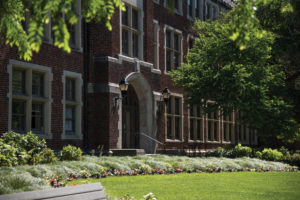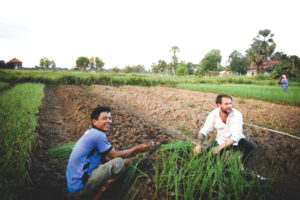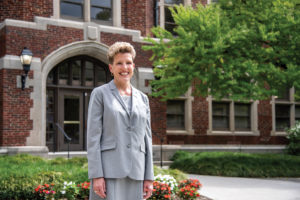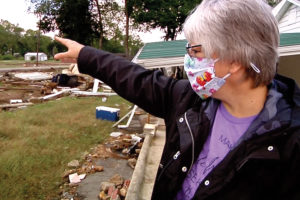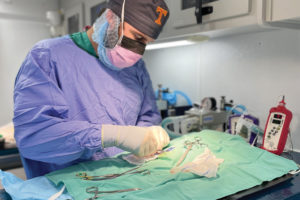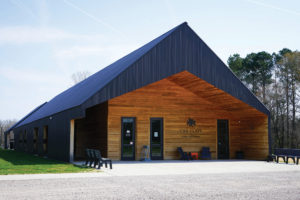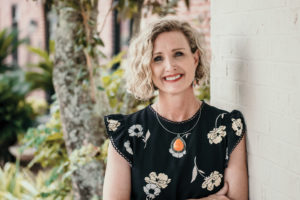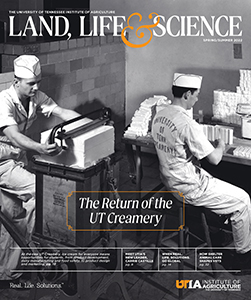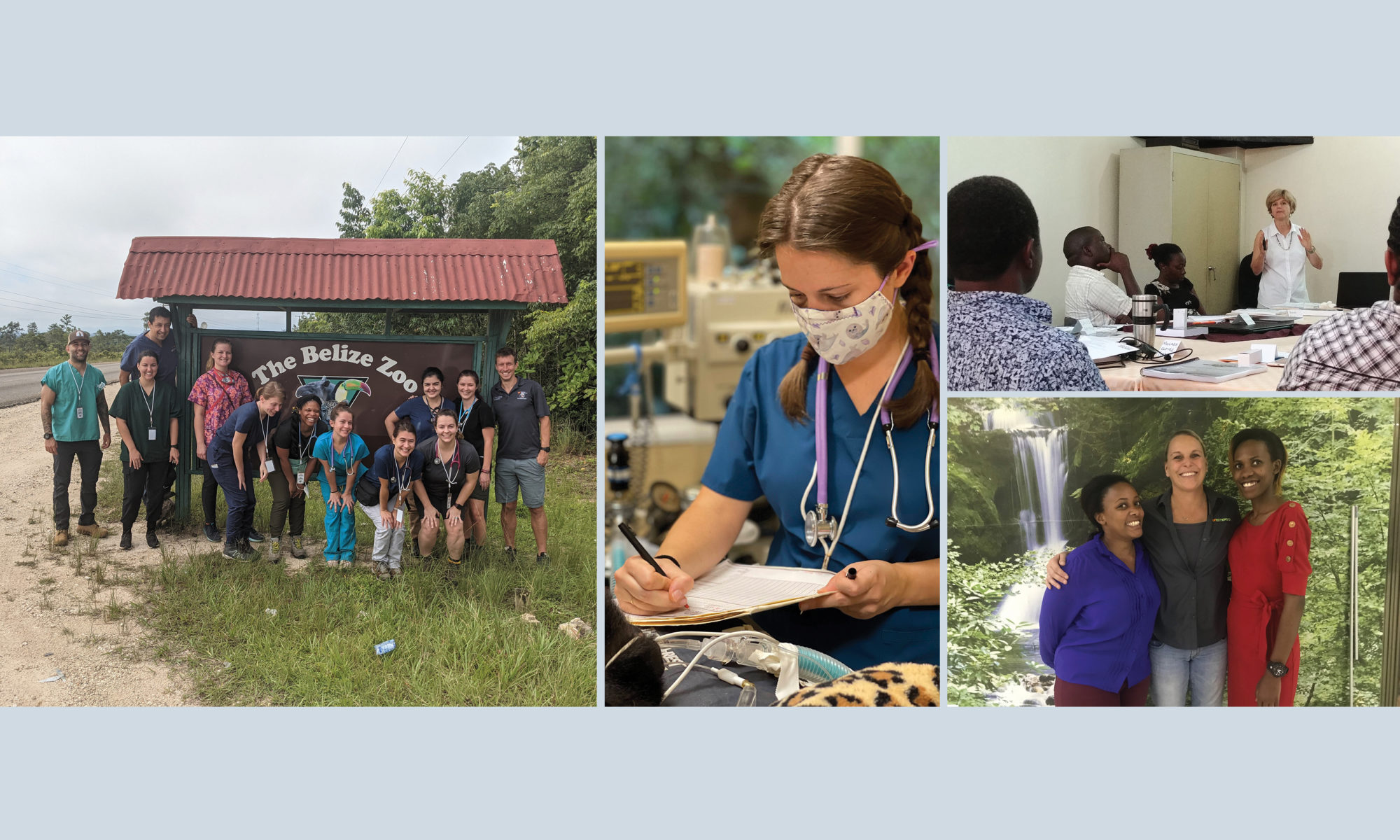
Any doubts about the connectedness of the world were erased by the COVID-19 pandemic.
Between travel restrictions, global supply chain issues, and various One Health impacts, the pandemic has reminded many of us about the importance of global implications and
international problem-solving.
These considerations are at the heart of international programs and global efforts underway at the UT Institute of Agriculture. Led by its Smith Center for International Sustainable Agriculture, UTIA is creating global partnerships and fostering innovative solutions to international puzzles that, if solved, will create a better world for generations to come.
Preparing students to face the grand challenges of the future is at the heart of UTIA’s educational mission, says Smith Center director Tom Gill. “Through both the Herbert College of Agriculture and the College of Veterinary Medicine, these goals are achieved through experiences abroad and at home,” Gill explains.
In the Herbert College of Agriculture, students can participate in study abroad programs throughout the year. From spring break opportunities in Costa Rica and Guatemala to winter term trips to Mexico and Argentina, students are exposed to the intricacies of international agriculture. Students observe each nation’s industries and cultural traditions, bringing back insights that can address agricultural issues in our own nation.
Carlos Trejo-Pech, an assistant professor in the Department of Agricultural and Resource Economics, recently led a winter mini-term study abroad to Mexico that allowed students to learn about the production, processing, quality-testing, and commercialization of coffee. This experiential learning course included classroom lectures and field visits to coffee farms, labs at a research institution, a coffee museum, a rural specialty coffee shop, and a thriving coffee cooperative. Seeing and experiencing the various facets of coffee production in Mexico provides students with a new perspective of agricultural production and helps generate ideas for solutions to local problems as well.
One international experience available at the College of Veterinary Medicine takes students to the Belize Zoo. While many UTCVM students are accustomed to having access to technological tools, students in a clinical rotation led by Andrew Cushing once a year receive a crash course in resourcefulness while learning on-site at the Belize Zoo, which operates without an X-ray machine, in-house bloodwork analysis capabilities, or many of the diagnostic tools available within UTCVM.
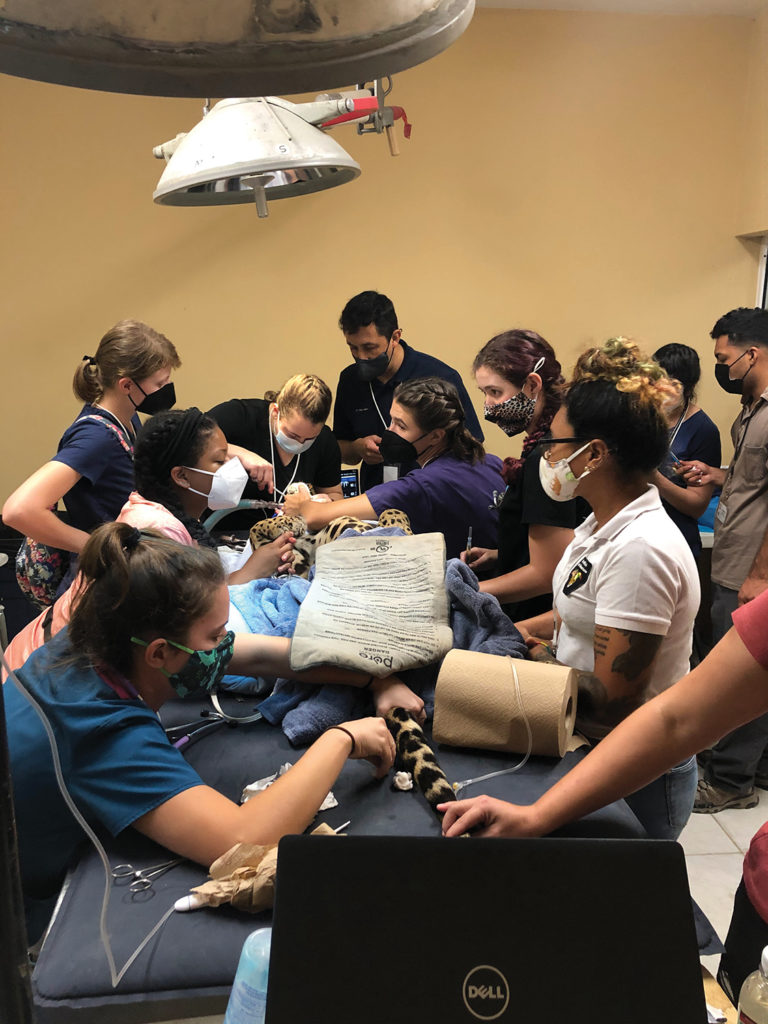
“Students are able to experience what it’s like to practice veterinary medicine without the benefits and advanced technology available to them at a teaching hospital,” says Cushing, a clinical associate professor in the Department of Small Animal Clinical Sciences. While the students receive firsthand experience in wildlife conservation, rescue, and rehabilitation, the zoo, situated in a developing country with limited resources, benefits as well.
“We teach the caregivers at the zoo various skills, like how to do a proper necropsy and protocols to follow, how to take samples, and take appropriate photographs to aid in diagnostics,” explains Cushing. “Without a veterinarian on staff, students are able to help with a laundry list of preventative and diagnostic treatments to keep the animals healthy.”
Supported by multiple grants, the overseas clinical rotation exposes veterinary students to other cultures and to the lack of resources sometimes facing their peers in other countries.
In turn, this helps students become nimbler and more adaptable, which ultimately leads to veterinarians who are better equipped to respond to both local and global health issues.
Another UTCVM initiative approaches global learning from a different angle by working with universities to train veterinary instructors.
After traveling to East Africa to lead a four-day workshop in Uganda with UTCVM administrators India Lane and Misty Bailey, Marcy Souza realized that veterinary educators around the world wanted to learn how to be better teachers.
“Someone may be an expert in their field but has never learned how to teach,” says Souza, a professor who now helps with UTCVM’s Master Teacher Program.
The initial workshop in Uganda in June 2019 included twelve university professors from Kenya, Tanzania, Uganda, and Ethiopia. Now, nine veterinary instructors from Kenya, Tanzania, Uganda, and Ghana are continuing to participate in a faculty exchange program funded by the USDA. Through this initiative, visiting international faculty spend a semester paired with a faculty mentor from UTCVM or Herbert based on their areas of expertise and interest. Six to twelve months after their return to their home country, international faculty are visited by their UT faculty mentor to observe their teaching styles and continue the collaborative learning experience.
“This setup ensures that faculty can learn from each other and then apply those learned teaching skills to their classrooms, whether those are here or overseas,” adds Souza. While the COVID-19 pandemic has disrupted these efforts substantially, Souza hopes that 2022’s fall semester will see a full cohort for the faculty exchange program on campus.
While some UTIA initiatives are focused abroad, UT Extension is working across Tennessee as the population of the state continues to grow and change. Family and consumer sciences specialists and agents are developing new and innovative programming that centers on residents with international backgrounds.
One yearlong effort, a cookbook featuring recipes from around the world, was recently completed and launched for Extension agents to use in their communities. With nearly one in twenty Tennessee residents born somewhere besides the US according to federal census data, this effort addresses a timely need to build relationships with individuals from diverse backgrounds while continuing to provide nutrition education to stakeholders who are eligible for Supplemental Nutrition Assistance Program, or SNAP, benefits.
“This cookbook features recipes that represent the cultures from which many of our neighbors in Tennessee originate,” says Jennifer Ward, an Extension specialist and a team leader for the project. “We hope the cookbook serves as a way to communicate healthy nutrition messages and bring people closer to their global community.”
Ward, along with Lisa Fuller, Extension specialist, and Egla Lopez, Extension assistant, led a collaborative group that researched the recipes and then modified them for nutritional content, cost, and simplicity.
“The cookbook is being used in every county statewide and includes cultural history and food traditions for each of the global areas the recipes represent,” adds Ward.
“Through this project, we wanted to represent the cultures that are already here in Tennessee and invite Tennesseans, regardless of background, to engage with their community in meaningful ways,” Fuller says. In addition to English versions of each recipe, the cookbook also includes the recipes in the native language of the represented area to encourage language learning.
Ongoing research at UTIA has the potential to impact a different, but distinct, community: youth in agriculture. A research methodology that has not yet been pioneered in agriculture is the basis for an international, three-year research project led by Carrie Stephens, professor in the Department of Agricultural Leadership, Education and Communications.
Photovoice, a methodology where study participants capture photos, is being used to encourage Ugandan youth to participate in the agriculture sector. Students are provided an
iPhone and invited to capture what they know and what they understand about value chains of two peanut crops. Then, students provide captions for the images, giving them a voice in the industry and revealing to Stephens and her team what they understand and what they value about the crop growing and marketing process.
“Peanuts were chosen strategically,” says Stephens. “Whereas agriculture is a male-dominated industry in Uganda, most peanut crops are grown by women. This levels the playing field a bit for youth who might be pulled away from their communities to take jobs in the city when they struggle to see where they fit in the world of agriculture.”
By empowering youth to be part of the storytelling process for peanut crop value chains, Stephens is hopeful more youth will choose to remain in ag-focused communities. She also hopes that the lessons learned about how youth view agriculture can be applied to issues facing American youth as well. Long-term goals of the project aim to assess gaps in knowledge that can impact students involved in 4-H, FFA, and other ag-focused school clubs in the US.
Stephens adds, “With this project, both US and Ugandan communities win as what participants capture tells us what’s important to them when it comes to this industry.”
Whether the impacts are student-, teacher-, or community-focused, UTIA is engaged throughout the globe influencing agricultural practices and making strides to create a better future. Real. Life. Solutions. truly are for Tennessee and well beyond.
Explore More on
Features
MORE FROM THIS ISSUE


